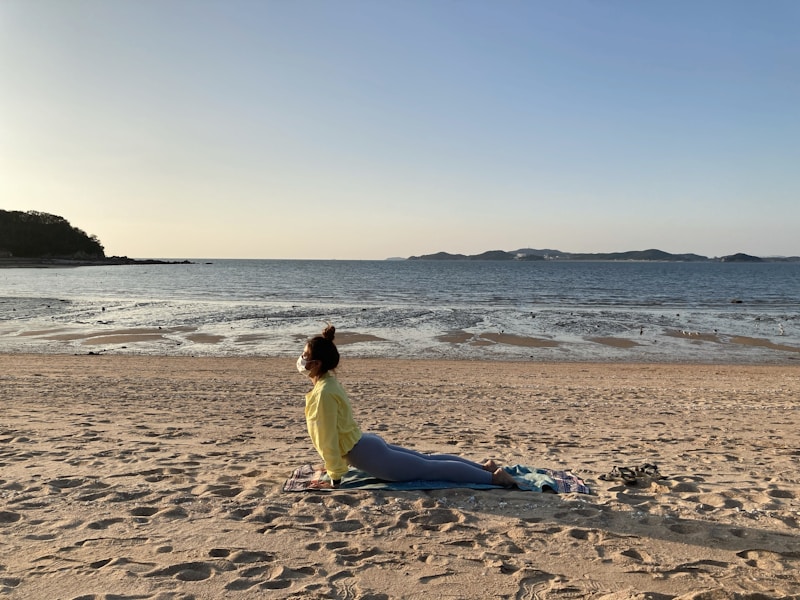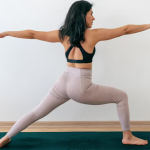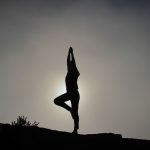I roll out my ultra sticky yoga mat, take off my Sweaty Betty leg warmers, light some Nag Champa incense, turn the volume up on my playlist of chilled world music, prepare a bottle of lavender essential oil, dim the lights and finally I’m ready to practice yoga. At the same time a group of people not too far from my cosy home studio are gathering in a room with nothing more than an hour of time, a dedicated yoga teacher and an appetite for change.
Put A Yoga Teacher In A Prison…
Sally Wagner has been practicing yoga for over 20 years and when I asked her about teaching in prison, she said, “I know the amazing effects that a regular yoga practice can have, both mentally and physically. I love how the practice makes me feel and the positive effect it has in my life; on and off the mat.” She has been teaching a class at HMP Guys Marsh for 10 months, during which time she has seen some of the participants make positive changes:
“They are more open and talkative, able to relax and really enjoy and look forward to their yoga class each week. The class is good fun and we have a laugh. I let the guys make decisions about the class and how they would like to progress, at first this was strange for them, as they weren’t used to being given choices. I feel like we have a good connection now and that the regular group feel comfortable with me as their teacher.”
What Does Freedom Mean To You?
I asked some of my fellow yogis what being imprisoned meant to them and here are some of the answers I got:
“Being restricted and denied freedom. Limited by our thoughts and beliefs.”
“Lost freedom. The freedom to choose to go where you want and to do what you want to do.”
“Being a victim of circumstance.”
Freedom — we are so lucky to have it, and yet so many of us end up taking it for granted. To me, freedom means being able to come and go as I please, having the confidence to think freely, the space to speak my mind, socialise as I wish and fall in love with whomever my heart chooses.
At times during my life I have had one or two of these liberties taken from me; relationships where I’ve been fearful, jobs where I’ve been stifled, confidence that has been stolen, but in each of these situations I could still walk away, get advice from my friends, switch career or simply change my mind. In every moment of struggle I have still had choices. Take away all of someone’s choices and you surely have the true definition of imprisonment.
A Change Of Perspective
You know when you read a book that changes your perspective on something entirely? For me, when I picked up The Kite Runner by Khaled Hoesseini and devoured it from cover to cover in a single day — that was one of those moments.
I had always felt that people in prison somehow deserved to be there. They had committed a crime and now they were doing the time, just like the old saying tells us. Society often tells us that when you do something wrong you must be punished and the severity of your punishment will reflect the severity of your crime — but few things in life are that clear cut. Who can really say which crime is worse than another? And won’t everyone’s definition of suitable punishment wildly vary?
There was a beautiful phrase in The Kite Runner between father and son:
There is only one sin, only one. And that is theft. Every other sin is a variation of theft… When you kill a man, you steal a life. You steal his wife’s right to a husband; rob his children of a father. When you tell a lie, you steal someone’s right to the truth. When you cheat, you steal the right to fairness.
When you think in these terms, you no longer feel you have the right to rank peoples sins. It also makes me think that stealing all of someone’s liberties is just responding to one crime with another. And so the cycle of violence will continue
Breaking The Cycle Of Violence
How can we break the cycle? Give people the opportunity to heal themselves, to turn away from unhealthy learned behaviours and to be able to find freedom within, if nowhere else. Luckily there are scores of dedicated yoga teachers heading into prisons to share the skills they have cultivated through their own dedicated yoga practice and striving to create a culture of rehabilitation over incarceration. Teaching giving back rather than taking more.
One such organisation is Prison SMART who has offered programmes to more than 350,000 participants worldwide to date. They are on a mission to make a life-transforming difference by helping people to live their highest potential and contribute to society. The founder puts it into perspective:
Expand your vision and see that inside every culprit, there is a victim crying for help. That person is also a victim of ignorance, small-mindedness and lack of awareness. It’s the stress, lack of understanding, lack of broad vision about life, and bad communication that leads to violence in society.
– Sri Sri Ravi Shankar, IAHV and SMART Founder
Another great organisation working closely with yoga teachers and prisons in the UK is The Phoenix Prison Trust. They lay out pretty clearly the benefits of bringing yoga and meditation into prisons and how these benefits extend beyond only the inmates and out into the staff community as well:
Inmates:
- Feel less angry and aggressive
- Sleep better
- Are less prone to taking drugs
- Are more ready to take up other educational activities
- Develop self discipline and concentration, often for the first time
- Find something in themselves they can like, they feel less isolated and encouraged to socialise, which prepares them well for resettlement
Staff:
- Help manage their stress
- Become more tolerant
- Are sharper on the wings
- Have a chance for some peace and are refuelled for the work ahead.
Finding True Freedom
Many people see their yoga practice as a path to Moksha – emancipation, liberation, and release. Freedom from the differentiated, temporal, and mortal world of ordinary experience.
Wouldn’t it be a beautiful thing for everyone to find that liberation, even behind bars?













